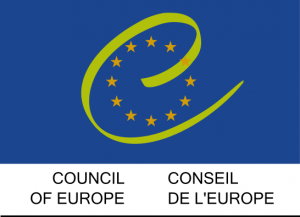Protecting Human Rights Online: New guidelines for online games and ISP’s
03/10/2008
 Strasbourg, 03.10.2008.- The Council of Europe has launched, in close cooperation with European online game designers and publishers and Internet service providers, two sets of guidelines which aim to encourage respect and promote privacy, security and freedom of expression when, for example, accessing the Internet, using e-mail, participating in chats or blogs, or playing online games.
Strasbourg, 03.10.2008.- The Council of Europe has launched, in close cooperation with European online game designers and publishers and Internet service providers, two sets of guidelines which aim to encourage respect and promote privacy, security and freedom of expression when, for example, accessing the Internet, using e-mail, participating in chats or blogs, or playing online games.
The Interactive Software Federation of Europe (Video Games Europe) and the European Internet Service Providers Association (EuroISPA), concerned by the need to raise awareness about human rights and to build confidence on the Internet, have worked with the Council of Europe, which has a mandate to protect these rights in Europe, to create two separate sets of guidelines for their respective sectors. Building on existing self-regulations or projects, these guidelines offer simple and practical guidance to the operators concerned on how to make the Internet an open and safe place for users and to ensure their right to access, play and create.
The specific guidelines for online game providers signal the importance of raising awareness of the positive use of games balanced with the need to secure freedom of expression and to protect users, children in particular, from unsuitable, violent or racist content. They also recommend applying independent labeling and rating systems for games, such as the Pan European Game Information (PEGI) system or PEGI Online, and offering guidance to users and parents on risks such as the excessive use of games, bullying or harassment, and providing personal data.
The guidelines for ISPs – which provide access to the Internet, content, hosting and services such as e-mail, chats or blogs – recommend firms to ensure that information is available to users entering the Internet world about the risks to privacy, security and freedom of expression. One of their key aims is to complement the work already carried out by operators to help protect children from harmful or illegal content and other risks such as grooming. They also deal with risks for data integrity such as viruses or worms; and for privacy, for example, the collection of personal data without the consent of users.
"This new approach complements the Council of Europe's work in promoting human rights. It follows our conviction that every stakeholder in society – the private sector included –has a role to play within its sphere of activity. It does not consist of creating legal texts, but in assisting companies to promote these rights in their daily activity", said Jan Kleijssen, Director of Standard-Setting of the Council of Europe.
"Over the last six years, the PEGI self-regulation has met its core objective to provide European parents with recommendations regarding the suitability of game content for minors. The fact that this further step is endorsed by the European organisation that stands for human rights is both a tribute to our achievements and an invitation to further improve PEGI", said Patrice Chazerand, Secretary General of Video Games Europe. Video Games Europe represents the interests of the online game industry in 31 European countries.
"Defence of human rights has always been at the forefront of EuroISPA activities. We have always been acutely aware of the fact that the Internet poses particular challenges for users in protecting their fundamental rights. We will therefore continue to make sure that consumers have the best quality information available to them, while insisting that ISPs must not suffer from excessive demands from governments and that consumers' rights are not undermined by the effects of "information overload" or disproportionate interference in their private lives", said Professor Michael Rotert, Vice-President of EuroISPA. EuroISPA represents around 1,000 ISPs in Europe – providing services such as access to the Internet, applications, content and hosting.

